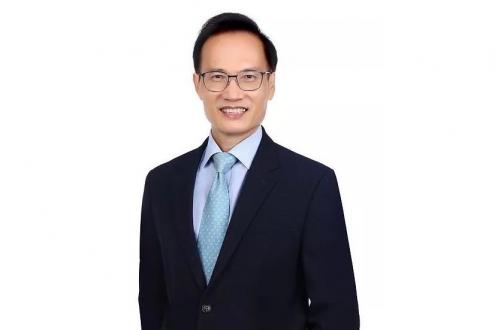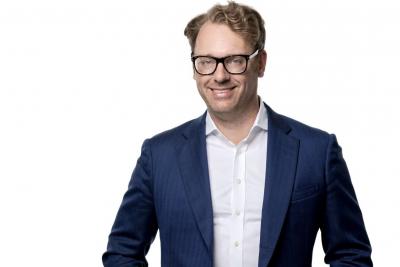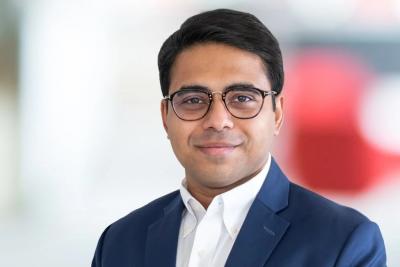AsiaNext’s CEO Explains the Mission to Deliver an Institutional Grade Digital Assets Exchange

Sep 4, 2022
It was back in late 2020 that SIX Digital Exchange (SDX) and SBI Digital Asset Holdings announced their plans to create an exchange for digital assets in Singapore. The joint venture was finalised in September 2021 with plans to go-live in 2023. Hubbis discussed the latest state of progress recently with Chong Kok Kee, who since March this year has been CEO of AsiaNext. He explained what the Singapore based Swiss-Japanese joint venture is bringing to the expanding world of digital assets and cryptocurrencies. He drilled down into AsiaNext’s mission to create an institutional-grade marketplace for the trading of digital assets – curated for quality and to focus on both global and institutional clients and capabilities, be it the sell-side banks or the buy-side asset managers, hedge funds or leading family offices. He concedes that there are risks for institutions and investors entering this new space, but the mission for AsiaNext is to help ensure that those risks do not extend to any areas of the transacting processes.
Chong explains that the rationale for AsiaNext was the lack in the Asian time zone of a regulated exchange through which regulated financial institutions feel safe to transact.
“You have a number of so-called exchanges out there, and many of them call themselves institutional grade,” he explains, “but the reality is that we bring truly institutional grade ownership in the form of SIX and SBI, who have the experience and the credibility to create something of real substance and quality, and that is AsiaNext. We are offering what in the mainstream financial world the institutions would consider to be entirely secure, seamless, and effective.”
Rewards come with risks
Chong observes that even with interest rates rising, risk-free returns are minimal, investors of all types are allocating some percentage of their portfolios to alternative assets, the extent and the selection depending of course on their own risk appetites.
“They might buy into frontier markets, or high yield bonds, or riskier equities, or lower rated paper of higher-rated institutions, or they might buy into cryptocurrencies or other digital assets, and if so, we are there to help. Digital assets are in their infancy, but we believe they will continue to gain wider mainstream adoption.”
Growth and attrition
He concedes that numerous of the cryptocurrencies will not survive, but some will. And he says that the blockchain also has use cases, for example Ethereum for the deployment of smart contracts. “Digital assets are in the early phases of their journey, and more and more people and institutions are taking up some allocation, and that will grow in numbers and also in terms of how much they allocate,” Chong remarks.
He sees that many of the leading wealth management institutions remain wary of any exposure – direct or indirect – to cryptocurrencies, and cite negatives such as the extreme volatility, the impossibility of valuation theories, and the punitive Basel Capital Adequacy rules related to such holdings.
Mitigating risks
“We recognise all these issues,” he states, “but a central mission of an institutional-grade exchange such as AsiaNext is to help deliver solutions that help the wealth community help their clients realise some exposures to these assets, without themselves as financial institutions carrying disproportionate exposures in the process. And we are doing that across the two main classes, namely securities tokens and cryptocurrencies.”
He explains that it is the first of these classes that the wealth management community feel more comfortable with thus far. “Tokens represent an underlying, real-world asset, whether this might be real estate, or fine wines, or classic cars, and so forth,” he says. “Those at least have fundamental valuation metrics, or external market pricing.”
Tokens will prove increasingly popular
He thinks that tokenisation will therefore follow a path similar to asset-backed securities and bonds but will have the additional advantages of being supported by the blockchain, resulting in distributed ownership ledgers and verification, as well as easy fractionalisation, easy distribution, and a more global ownership profile and therefore liquidity. “Tokens ultimately can therefore become acceptable collateral that can be monetised,” he says.
In short, Chong says the value creation out of tokenisation from securities tokenisation is much clearer. And he believes the regulators will follow, put in appropriate safeguards into this nascent market to help ensure that this decentralised ecosystem is safe for financial institutions to participate in
Cryptos in a bleak mid-winter
“Securities tokenisation has a clearer pathway because there are clear benefits, whilst the crypto universe has become tarnished, not only in market pricing of many of them, but also in terms of the bad actors that have been exposed,” Chong reports.
“The crypto finance world therefore needs to go through a cleansing phase, this is the bleak crypto winter now, but we think summer will return and the whole crypto world will be more rationalised and will be viable for portfolios allocations, again depending on risk profiles and appetites.”
And he says AsiaNext will be there to capture that demand. “The uniqueness of AsiaNext is that it is an exchange built for institutions only,” he says. “We offer ourselves as a safe gateway, or trusted access for modern or next generation investments, basically, next generation investments in terms of digital assets. We enable access, we are in no way disrupting the intermediaries. We offer a safe gateway and institutionally understood practices.”
Key Priorities
Chong explains that the focus is currently on bringing all the different pieces together to launch the platform effectively, including the technology stack, hiring the right people across the board, and expedite the various licenses that will be needed, for example for crypto spot, or for securities tokens. “It will take more time,” he comments, “but we plan to be up and running by early 2023.”
Another parallel priority is to expand the connectivity to the potential market. “We are talking to a lot of our potential customers on the sell side and the buy side to understand where they are in terms of the digital assets journey, whether they will take exposure on our platform, what kind of products they want, and how they want to access our platform,” he says. “This will help us finesse a platform that's tailor-made for institutions, so that we get it right on day one.”
Chong closes the conversation by remarking that he has taken up the reins at AsiaNext with his eyes wide open to the challenges involved. “This is good timing for me and for the platform,” he says. “I was perhaps somewhat conservative earlier in my career, but these days I am comfortable in setting more aggressive targets, standing by those goals and delivering on promises,” he states.
“This role therefore suits me well at this time,” he concludes. “We are taking some risks, but we have a belief, and we are committed and passionate about our vision and the goals. That gels ideally with the world of digital assets and cryptos we are helping to build. Those coming into this market know that they cannot always be safe in their investments, they understand that rewards come with some risks, but AsiaNext will offer a secure, risk-free gateway for access.”
Getting Personal
Chong Kok Kee is the Singaporean CEO of AsiaNext, a digital asset exchange being set up in Singapore as a JV between SBI Digital Asset Holdings (Japan) and SIX Group AG (Switzerland). He joined in March 2022, bringing a wide range of expertise in FinTech, hospitality and real estate, banking, and capital markets, specifically in areas of corporate strategy and governance, business development, risk management, corporate finance, tech, operations, and compliance.
His career to date includes senior leadership positions in global multinationals such as UBS (Managing Director/COO/CFO), JP Morgan (Managing Director/CAO) and UK FTSE listed Millennium & Copthorne Plc (Group CFO). He was formerly the CEO/COO of two regulated digital asset/crypto exchanges also based in Singapore.
He has more than 30 years' working experience in several locations including China (9 years), Taiwan (4 years), as well as Hong Kong, Zurich, New York, London, and Singapore. He holds an Honours Degree in Accountancy from NUS and is a Fellow member of the Institute of Singapore Chartered Accountants, Institute of Certified Public Accountants Australia and Association of Chartered Certified Accountants UK, and a member of the Chartered Institute of Management Accountants (ACMA, CGMA).
He is married and has three children aged 29, 27, and 19, the oldest of whom is working in Singapore for an investment bank, the middle one works in the US as an actuary and the youngest is studying at King's College, London but is currently on an exchange programme with Johns Hopkins University in the US

CEO at AsiaNext

More from Kok Kee Chong, AsiaNext
Latest Articles






